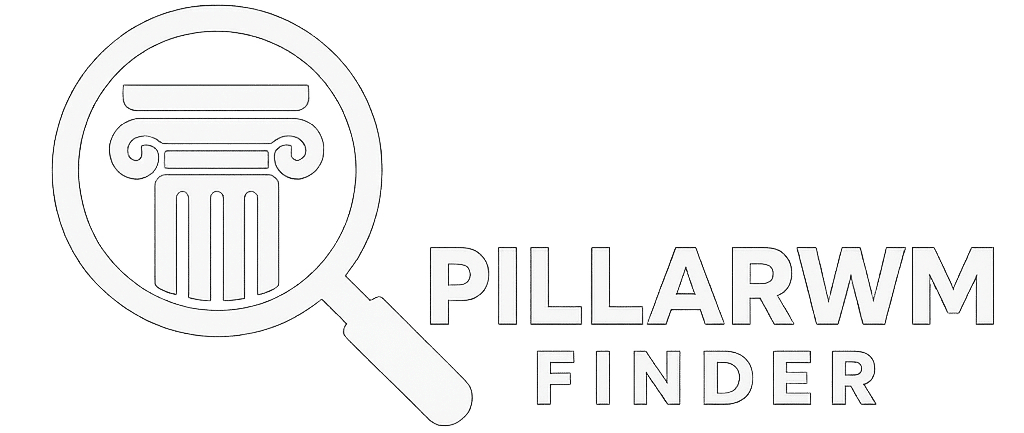The future of your finances depends on the choices you make today. Working with a fiduciary financial advisor near you can be a smart first step. Fiduciary advisors are legally obligated to act in your best interest, offering guidance designed to align with your specific goals. Whether you’re planning for retirement, allocating real estate sales proceeds into new investments, or improving day-to-day financial efficiency, a fiduciary advisor brings objectivity to a complex financial landscape. This guide is here to help you explore your options and find the right advisor near you.
Table of Contents
- How to Find a Financial Advisor Near You
- What to Keep in Mind When Looking for a Local Financial Advisor
- Finding a Fiduciary Financial Advisor
- Why Work with a Financial Advisor Near You?
How to Find a Financial Advisor Near You

There are several effective ways to help you locate a financial advisor near me.
Use an online financial advisor directory or matching service.
Finding the right advisor may take time, but there are research-based platforms that can help connect you with local professionals. These services often operate by allowing advisors to pay for increased visibility, while offering tools—such as questionnaires—to match users with advisors based on their financial goals and preferences.
Some directories feature a broad network of professionals, including financial advisors, fee-only planners, certified financial planners (CFPs), and other experts located throughout the United States.
Zoe Financial
Zoe connects users with advisors who hold credentials such as CFP®, CPA, or CFA. Some advisors in Zoe’s network may also offer tax-related support. While Zoe offers an initial consultation at no cost, ongoing advisory fees typically range from 0.50% to 1.50% of assets under management. Advisors listed on Zoe participate in the network through paid arrangements that enhance their visibility.
Harness Wealth
Advisors in the Harness Wealth network act as fiduciaries, meaning they are legally obligated to prioritize client interests. The platform includes a range of professionals, including CFPs, CFAs, CPAs, and tax attorneys. Advisory fees typically hover around 1% of assets managed, consistent with common fee structures among similar advisor platforms.
Wealthramp
Wealthramp offers access to a curated selection of fiduciary advisors. After completing a detailed online questionnaire, users are matched with up to three advisors. Individuals can review profiles and opt for an introductory meeting via phone, video, or in person. Wealthramp allows for personalized matching preferences, including geographic location or specific advisor characteristics such as gender.
Facet
Facet connects clients with its network of Certified Financial Planners (CFP®) to address a broad spectrum of financial planning needs, such as retirement, tax strategy, insurance, and education savings. Unlike traditional models, Facet operates on a flat-fee basis rather than a percentage of assets. All interactions are conducted remotely, allowing clients to engage with their advisor based on predefined milestones and goals.

Check the CFP Board website.
The CFP Board is the official organization that sets the education, examination, and experience standards required to earn the Certified Financial Planner (CFP®) designation. It emphasizes advisor competence and requires candidates to pass a rigorous exam covering a wide range of financial planning topics, in addition to meeting specific professional experience requirements.
On its website, the CFP Board provides a searchable directory that allows individuals to connect with certified financial planners. Users can filter by planning services, client focus, and language preferences to find professionals who match their unique needs.
Look into professional finance advisor organizations.

Numerous professional associations exist to help individuals connect with qualified financial advisors. Some of the most well-known include:
FPA
The Financial Planning Association is a nationwide group of financial planners focused on promoting education and accessibility. It provides resources to the public, including pro bono services and a searchable database of certified financial planners. Based in Denver, Colorado, the FPA represents approximately 23,000 financial professionals.
AAAA
The Association of African American Financial Advisors is a national nonprofit organization that helps connect African American investors with qualified financial professionals, particularly in areas such as generational wealth planning. Their website (aaaainc.org) includes a search tool to locate Black financial advisors.
NAPFA
The National Association of Personal Financial Advisors is a membership group of more than 4,400 fee-only financial planners. All members must adhere to a fiduciary standard and operate without earning commissions, ensuring that their advice is solely based on client interests. The NAPFA website allows users to find advisors who meet these standards.
Tap into a financial planning network.
Financial planning networks offer access to communities of professionals who may align with your needs. These networks often host events or maintain directories, giving you opportunities to engage with advisors directly and learn more about their services and planning approach.
Garrett Planning Network
Advisors in the Garrett Planning Network operate on a fee-only model, often charging by the hour or per engagement. Many hold or are pursuing credentials such as CFP®, CPA, or PFS, and all are required to adhere to a fiduciary standard. The network aims to improve accessibility by offering flexible and affordable planning services.
XY Planning Network
The XY Planning Network includes advisors who serve clients primarily through virtual platforms. All members are CFP® professionals and are compensated solely through fees—not commissions—supporting a model that prioritizes objective financial advice.
CHIP
CHIP is dedicated to improving access to financial professionals from Black, Hispanic, and Latinx communities. It connects clients with advisors across a range of specialties—including estate planning, tax strategy, and holistic financial planning—offering both online and in-person engagement options through a diverse network of financial firms.

Consider robo-advisors
Robo-advisors are automated investment platforms designed to manage your portfolio based on algorithms and predefined financial goals. They can be a practical solution for individuals seeking straightforward investment management without personalized planning. These platforms typically charge lower fees than traditional advisors, often between 0.25% and 0.50% of assets under management. Some robo-advisors also offer access to human advisors or integrated banking features, depending on the service tier.
Ask for a recommendation.
Personal referrals can be a valuable starting point in your search for a financial advisor. Friends, family, or colleagues may have firsthand experience with professionals who align with your needs. A trusted recommendation often highlights advisors known for reliability, transparency, or specialized services that may be difficult to find through a general search.

What to Keep in Mind When Looking for a Local Financial Advisor
If you’re considering working with a financial advisor in your area and prefer to handle the research yourself, here are some key steps to guide your search.
Identify the specific services you need.
Financial advisors often specialize in areas such as estate planning, tax strategies, or retirement income planning. Being clear about your needs will help you choose the right type of professional. If you’re focused solely on investment management, you might consider using a robo-advisor or learning to manage investments independently.
Verify certifications.
The term “financial advisor” is broad and not regulated in a uniform way. To ensure you’re working with someone qualified, look for credentials such as Certified Financial Planner (CFP®). You can verify certifications directly through the issuing organization’s website, such as the CFP Board.
Prepare your questions in advance.
Meeting with a potential advisor is an opportunity to evaluate whether their planning philosophy, communication style, and services align with your expectations. A good advisor-client relationship is built on comfort and transparency, so it’s important to feel confident and at ease during initial conversations.
Understand the fee structure.
Advisors may charge in different ways—by flat fee, hourly rate, or as a percentage of assets under management (typically around 1%). Make sure you understand how fees are structured, what services are included, and whether the pricing model works for your situation and preferences.

Finding a Fiduciary Financial Advisor
Finding a fiduciary financial advisor who aligns with your financial goals and ethical expectations can take time and thoughtful consideration. One helpful approach is to ask for recommendations from friends, colleagues, or professionals in your network—such as accountants or attorneys—who may be familiar with reputable advisors and understand your financial situation.
You can also explore independent online directories that connect users with financial advisors who act under a fiduciary standard. These platforms often allow you to filter results based on location, specialization, or certification. Many include advisor profiles, qualifications, and client reviews to help you evaluate whether someone may be a good fit for your needs.
Using a combination of referrals and digital tools, you can narrow your options and focus on finding a reliable advisor whose approach supports your long-term financial planning objectives.
What is a Fiduciary Financial Advisor?
Opt for a financial guide who is bound by a fiduciary responsibility to place your interests ahead of theirs. Fiduciaries disclose and even manage to avoid any conflict of interest that could go in your favor, but can never use your assets for their personal benefit. It’s hard to distinguish a fiduciary from a broker, particularly considering a lot of advisors are dually registered as both brokers and investment advisors.
Such a dual role allows them to switch between acting in the best interest of the client while financially pursuing their own interest when selling products, often without clear disclosure. So, it is very important to understand if that potential financial advisor is a fiduciary or not. An advisor who is not a fiduciary may offer you something that only benefits them, like a bigger commission or bonus. This search is a bit complicated in that identifying fiduciary advisors is rated as one of the key steps toward finding an advisor who really serves your financial goals.
What is a Fiduciary Financial Advisor?
A fiduciary financial advisor is someone legally obligated to act in your best interest when providing investment advice or financial planning services. Fiduciaries must disclose potential conflicts of interest and prioritize their clients ‘ needs over their own compensation or firm incentives.
It’s important to note that some professionals are dually registered, meaning they can operate both as fiduciaries and as brokers depending on the service provided. This dual registration can sometimes lead to confusion about when an advisor is required to follow a fiduciary standard. For this reason, it’s essential to ask whether a potential advisor is always acting as a fiduciary, and under what circumstances.
How to Check if Someone is a Fiduciary Using Online Sources
Several public resources are available to help you verify whether an advisor or firm is legally required to act as a fiduciary:
NAPFA.org (National Association of Personal Financial Advisors):
NAPFA is a professional organization of fee-only financial advisors who operate under fiduciary standards. The NAPFA directory allows users to search for advisors who do not receive commissions and who are committed to transparent, client-focused planning. Visit napfa.org to explore their network.
SEC (U.S. Securities and Exchange Commission):
The SEC oversees Registered Investment Advisor (RIA) firms, which are held to a fiduciary standard. You can use the SEC’s Investment Adviser Public Disclosure (IAPD) tool to look up whether a firm is registered and to access its Form ADV filing. This document provides an overview of the firm’s services, compensation structure, and any disciplinary history. Access the tool at adviserinfo.sec.gov.

Why Work with a Financial Advisor Near You?
Even in an age where many services are shifting to digital platforms, in-person financial planning remains important for many individuals. Dan Moisand, former chair of the CFP Board in 2023, noted that the preference for face-to-face interaction is still strong.
“Many individuals still value personal interactions highly, especially when discussing significant aspects of their financial future,” Moisand stated.
While virtual meetings are convenient, meeting with a local financial advisor can offer added insight into their professionalism, communication style, and overall approach. Supporting a local advisor also contributes to your regional economy, much like choosing to shop at neighborhood businesses or farmers’ markets.
Local advisors may also have strong connections with nearby professionals, such as estate attorneys, tax specialists, and CPAs. These connections can become valuable resources as you work toward your financial goals.
Ready to explore your options? Start with these tools:

Frequently Asked Questions
What role does FINRA have in overseeing fiduciary financial advisors?
FINRA (Financial Industry Regulatory Authority) primarily regulates brokerage firms and their registered representatives. While FINRA’s oversight mainly applies to brokers and dealers, some financial professionals—such as those dually registered as both brokers and advisors—fall under its purview. FINRA helps enforce ethical standards and professional conduct across the financial services industry, including situations where fiduciary responsibilities may overlap with brokerage activities.
How do financial advisory firms fulfill their fiduciary responsibility to clients?
Firms that operate under a fiduciary standard are obligated to place clients’ interests above their own. This means offering financial planning or investment advice that reflects the client’s needs, rather than steering decisions based on commissions or internal incentives. Fiduciary advisors typically focus on long-term strategies—such as retirement planning—by providing objective, experience-based recommendations.
What distinguishes registered investment advisors from other financial professionals?
Registered Investment Advisors (RIAs) are held to a fiduciary standard and are typically compensated through fees, not commissions. This sets them apart from brokers, whose earnings may depend on selling financial products. Because RIAs are fee-based, their success is often tied more directly to the outcomes they help clients achieve.
In what ways can fiduciary financial advisors support retirement planning?
Fiduciary financial advisors play an important role in retirement planning by offering guidance that is free from product-based conflicts of interest. They consider a range of options to develop personalized strategies that match each client’s retirement timeline, risk tolerance, and income goals. Their obligation to act in the client’s best interest helps ensure more consistent and aligned decision-making.
Why should individuals seeking retirement advice consider advisors regulated by FINRA or registered as investment advisors?
Choosing an advisor who is either regulated by FINRA or registered as an investment advisor adds a layer of accountability. These regulatory frameworks establish conduct standards and disclosure requirements, helping ensure the advice you receive is aligned with your goals and delivered in your best interest.

